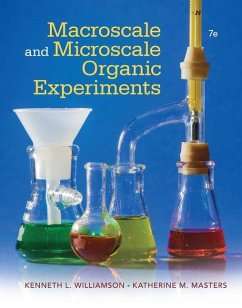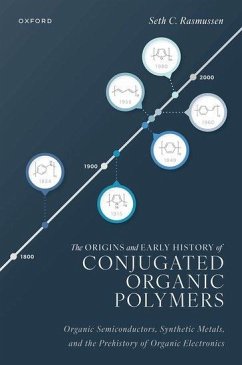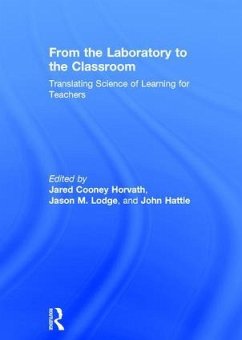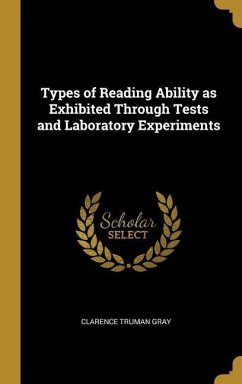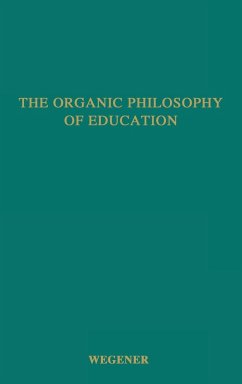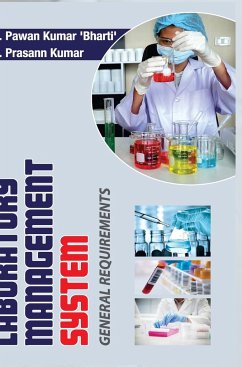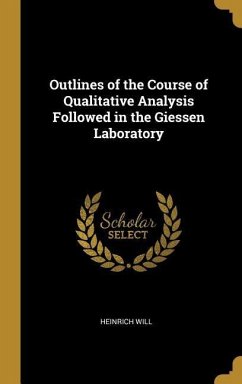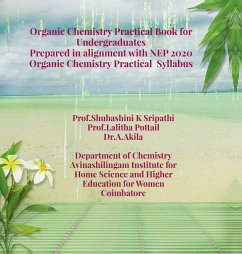
A Microscale Approach to Organic Laboratory Techniques
Versandkostenfrei!
Versandfertig in über 4 Wochen

PAYBACK Punkte
76 °P sammeln!




Taking an organic chemistry laboratory course? You need a laboratory textbook you can trust! This proven book gives you what you need to conduct a variety of interesting microscale experiments with safety and ease -- while you develop an understanding of the special techniques these types of experiments require.
Donald L. Pavia earned his BS degree in chemistry from Reed College and his PhD in organic chemistry from Yale University. In 1970, he joined the faculty at Western Washington University as Assistant Professor and now holds the rank of Professor Emeritus. He is the coauthor of two organic laboratory books that include techniques and experiments: INTRODUCTION TO ORGANIC LABORATORY TECHNIQUES: A MICROSCALE APPROACH (Cengage Learning), and A SMALL SCALE APPROACH TO ORGANIC LABORATORY TECHNIQUES (Cengage Learning), as well as MICROSCALE AND MACROSCALE TECHNIQUES IN THE ORGANIC LABORATORY (Cengage Learning), which highlights techniques to be used with a faculty member's own experiments. He is a co-author, with Gary M. Lampman, George S. Kriz and James R. Vyvyan of an organic spectroscopy book, INTRODUCTION TO SPECTROSCOPY (Cengage Learning). Professor Pavia's research interests center on the synthesis and reactions of valence tautomeric and photochromic compounds, especially pyrylium-3-oxide tautomers. Autoxidations are a special interest. His other interests include the use of computers in teaching organic chemistry, both for lecture presentation and for the simulation of laboratories. He is the author of several computer programs. One such program is SQUALOR (Simulated Qualitative Organic Analysis) for which he won the 1986 EDUCOM/NCRIPTAL award. The program is designed for teaching the methods for solving organic unknowns.
Produktdetails
- Verlag: Cengage Learning
- 6th edition
- Seitenzahl: 1056
- Erscheinungstermin: 1. Januar 2017
- Englisch
- Abmessung: 277mm x 218mm x 41mm
- Gewicht: 2404g
- ISBN-13: 9781305968349
- ISBN-10: 1305968344
- Artikelnr.: 45465147
Herstellerkennzeichnung
Libri GmbH
Europaallee 1
36244 Bad Hersfeld
gpsr@libri.de
Für dieses Produkt wurde noch keine Bewertung abgegeben. Wir würden uns sehr freuen, wenn du die erste Bewertung schreibst!
Eine Bewertung schreiben
Eine Bewertung schreiben
Andere Kunden interessierten sich für


